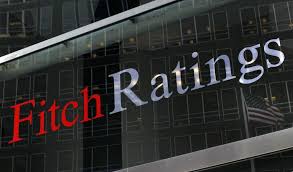By Paul Nicholson
April 22 – Credit ratings agency Fitch Ratings has highlighted the current strength of the sports market in its Infra-Read market briefing newsletter issued from its US offices. The newsletter examines the health of a number of infrastructure sectors but leads its editorial with a focus on sports saying that the explosive growth in sports media rights is driving revenue, flexibility and stability.
“The recently announced English Premier League’s multi-year television renewal with a 70% increase in fees continues the trend seen in US sports leagues over the past three years,” says the report. Fitch also points to a 55% increase in the NFL contract through to 2021, a doubling of the Major League Baseball contract and the NBA’s three-fold increase secured last October.
The report is primarily referring to assessing risk of club financing for infrastructure projects, like stadia. It does issue a warning that the highest risk factor to this finance is ever-increasing player wage contracts.
But as regards media value and the stability of these revenues, Fitch is positive. And while the focus of the analysis was on US sports franchises, the European market in particular is expected to mirror the trend of the US, if it isn’t doing so already in Europe’s major football leagues.
“Sports content is extremely valuable because of its on-demand viewing (sports content is not typically DVR’d like other content) and its long track record and high viewer base. Sports content attracts the 18-45 year-old male demographic that is not regularly captured through other television platforms. These factors drive and enhance advertising and sponsorship interest,” says the editorial.
“With the increase in television contracts, the breakdown of revenues for individual teams is shifting. While national television broadcast revenues may have represented 15%-25% of revenues 15-20 years ago, contractually obligated television revenues from investment-grade rated counterparties can now account for over 50% of revenues, depending on the league. Leagues that have local television contracts can now expect at least 60% of their revenues from contractual broadcast sources.
“The increase in national television contracts will enhance financial stability and flexibility across franchises. Historically, a franchise’s reliance on game-day revenues such as ticket sales, food and beverages and parking was high and could fluctuate significantly year by year, depending on team performance. This led to highly volatile operating revenues. Game-day attendance and ticket prices will be the other driving factors for medium- to long-term stability in the sports sector and will be a key component in future television renewals. Nevertheless, with increases in broadcast contracts, players’ salaries, typically the largest expense item at up to 50% of the overall expense base, are also expected to increase, dictated by some league collective bargaining agreements.”
Fitch emphasises financial stability and “flexibility across investment-grade sports franchises” as being expected to continue to grow. National television contracts currently accounting for over 50% of revenues for some investment-grade sports franchises, and local media contracts add another 10-20%.
“The growth in local media rights should lead to more media company financing structures, similar to some stadium or arena company financing structures, where facility collateral is placed in a special purpose vehicle, away from the operations of the team. The expected deal pipeline should be robust,” said Chad Lewis, Senior Director at Fitch.
Fitch Ratings publicly rates the league-wide credit facilities for the NFL, MLB, NBA and has rated over 30 sports related financings including recently a closrer look at European football finance. Fitch’s ‘Rating Criteria for Sports Leagues, Franchises and Facilities’ of 9 August 2012, details the sector criteria that are used together with the master project finance or corporate criteria to analyse sports financing.
Contact the writer of this story at moc.l1745041348labto1745041348ofdlr1745041348owedi1745041348sni@n1745041348osloh1745041348cin.l1745041348uap1745041348

